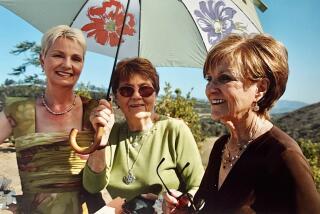Which is a stronger health indicator: genetics or lifestyle?
A good friend of mine was approaching her 49th birthday with trepidation. Why, I asked her, was she so afraid of 49?
“My mother died at 49 of a heart attack. The same thing will probably happen to me,” she said. Not likely, I replied. And we started to talk about her mother.
Her mother was a child of the age before genetics, before cholesterol, before we knew the dangers of smoking, fat and salt. Her mother and her mother’s mother cooked with bacon grease, lard and other ingredients that many of us eschew today.
Did she eat like that? No, nor did she smoke. And she exercised regularly.
In my inexpert opinion, I said, she was probably a lot healthier than her mother was at the same age.
This made me think about all the talk today of genetics, and to wonder how much of what we are is nature versus nurture. And I decided to ask my new doctor about it. (I recently changed doctors. Not something I had planned, but the doctors in the practice that I use have in the last few years either gotten pregnant and retired, or moved away.)
He has my family history: My father died in his mid-70s of pancreatic cancer. My mother died in her early 80s of heart problems plus a myriad of ailments about which we know little.
Back in the 1950s, my grandparents died of “stomach” cancer. (Was it really the stomach, or was it colon, liver or some other organ -- who knows?)
As he reviewed this history, I asked him why doctors don’t also ask how our ancestors lived.
My parents grew up in households where rye bread slathered with chicken fat and fried onions was a healthy snack. Both my parents smoked because no one told them they shouldn’t. When they finally retired, they discovered the joy of McDonald’s hamburgers and fries.
My father’s five o’clock Scotch quickly became his four o’clock Scotch, and one Scotch became two and then more. Exercise was not in their lexicon. As young people, they were too busy figuring out how to survive to worry about walking.
But none of that is in my medical records. All that’s there is what caused my parents’ demise. The assumption is that, because of genetics, those are the things I’m at risk for as well.
A 2007 L.A. Times article quoted Dr. Moira Fordyce, a geriatrician at Stanford University’s School of Medicine, as saying that genetics accounts for only about 30% of the aging process. The other 70% is lifestyle.
Surely, then, those medical forms we all fill out when we visit a doctor should be expanded to include how our parents and grandparents lived as well as how they died.
I’d like to think that when I finished explaining my nature versus nurture theory to my friend, she felt better. But I guess I won’t know that until she celebrates her 50th birthday.
Myra Neben is the retired editor of the Leisure World News, now the Laguna Woods Globe, in Laguna Woods.
My Turn is a forum for readers to recount an experience or air an opinion related to health or fitness. Submissions are subject to editing and condensation and become the property of The Times. Read other My Turn columns at latimes.com/myturn.






